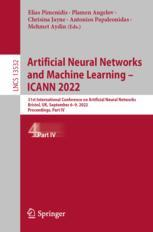スキルアップAI株式会社 / 講師 / データサイエンティスト
(1+1)-CMA-ES with Margin for Discrete and Mixed-Integer Problems

Yohei Watanabe, Kento Uchida, Ryoki Hamano, Shota Saito, Masahiro Nomura, and Shinichi Shirakawa: (1+1)-CMA-ES with Margin for Discrete and Mixed-Integer Problems, Genetic and Evolutionary Computation Conference Companion (GECCO 2023), Lisbon, Portugal (hybrid), July 15-19, 2023 ・arXiv: https://arxiv.org/abs/2305.00849 ・Code: https://github.com/shiralab/elitist-cmaes-with-margin ========= The covariance matrix adaptation evolution strategy (CMA-ES) is an efficient continuous black-box optimization method. The CMA-ES possesses many attractive features, including invariance properties and a well-tuned default hyperparameter setting. Moreover, several components to specialize the CMA-ES have been proposed, such as noise handling and constraint handling. To utilize these advantages in mixed-integer optimization problems, the CMA-ES with margin has been proposed. The CMA-ES with margin prevents the premature convergence of discrete variables by the margin correction, in which the distribution parameters are modified to leave the generation probability for changing the discrete variable. The margin correction has been applied to (μ/μw,λ)-CMA-ES, while this paper introduces the margin correction into (1+1)-CMA-ES, an elitist version of CMA-ES. The (1+1)-CMA-ES is often advantageous for unimodal functions and can be computationally less expensive. To tackle the performance deterioration on mixed-integer optimization, we use the discretized elitist solution as the mean of the sampling distribution and modify the margin correction not to move the elitist solution. The numerical simulation using benchmark functions on mixed-integer, integer, and binary domains shows that (1+1)-CMA-ES with margin outperforms the CMA-ES with margin and is better than or comparable with several specialized methods to a particular search domain.


